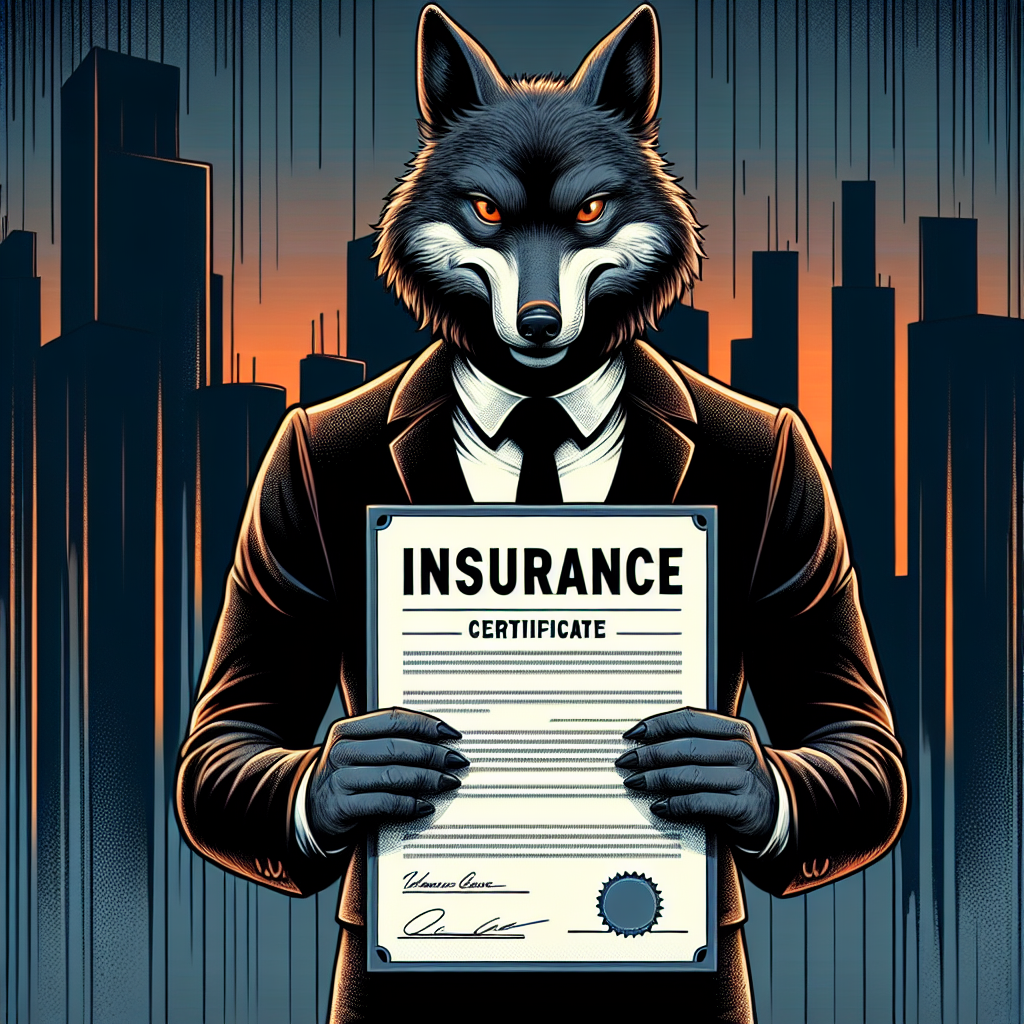Filed under Business Insurance on
Beware of Fake Business Insurance Certificates

In the intricate world of business insurance, ensuring that your coverage is legitimate and adequately protects your business is crucial. However, with the rise of fraudulent activities, one significant concern is the proliferation of fake business insurance certificates. These counterfeits can leave businesses vulnerable and exposed to financial disaster. This article delves into the nuances of fake business insurance certificates, their implications, and how to safeguard your business against them.
Understanding Business Insurance Certificates
A business insurance certificate is an official document that verifies the existence of an insurance policy. It provides essential details such as the policyholder's name, coverage types, limits, and effective dates. These certificates are often required when businesses engage in contracts or seek to assure clients of their insurance coverage. They essentially serve as a snapshot of a policy, offering peace of mind to stakeholders involved.
The Rising Threat: Fake Business Insurance Certificates
As businesses strive to build credibility, the demand for proof of insurance has increased. Unfortunately, this has also led to a rise in the production of fake business insurance certificates. Fraudsters produce these counterfeit documents to mislead business partners, secure contracts, or reduce costs by avoiding proper insurance coverage. Operating with a fake certificate not only betrays client trust but also exposes the business to significant legal and financial repercussions.
Recognizing a Fake Business Insurance Certificate
Identifying a fake business insurance certificate requires a keen eye for detail and an understanding of standard insurance documentation. Below are some telltale signs that a certificate may be fraudulent:
- Inconsistencies in Details: Pay attention to any discrepancies in the business name, policy numbers, or coverage information compared to expected standards.
- Poor Quality: Authentic certificates are typically produced with high-quality printing and paper. Beware of certificates that appear shoddily produced or have spelling errors.
- Unverified Issuer Details: Ensure the insurance provider's details, such as contact information and licensing, are legitimate and verified.
Implications of Using a Fake Business Insurance Certificate
Operating with a fake business insurance certificate can lead to dire consequences. The immediate impact includes loss of reputation and trust among clients and partners. Beyond reputation, businesses face potential legal actions and hefty fines. In the event of a claim, businesses may find themselves financially liable, leading to potentially crippling financial damage.
Industry and Legal Repercussions
Several industry associations now play a pivotal role in combating these fake insurance certificates by enforcing stringent verification standards and encouraging the adoption of digital authentication methods. Legally, businesses found guilty of using counterfeit certificates can face lawsuits and severe penalties, including possible suspension of operations.
Protecting Your Business: Steps to Verify Authenticity
To protect your business from the risks associated with fake business insurance certificates, entrepreneurs and business owners should take proactive measures to verify the authenticity of their insurance documents:
- Direct Verification: Contact the insurance provider directly using officially listed contact details, not the information on the certificate, to verify coverage details.
- Third-party Verification Services: Utilize reputable third-party services that specialize in verifying insurance certificates.
- Digital Authentication Tools: Consider employing digital solutions such as blockchain technology, which provides a secure and transparent method of verifying insurance policies.
Implementing Robust Internal Policies
Establishing strict internal policies is vital in ensuring that your business only accepts genuine certificates. Training employees to recognize the signs of fake documents and creating a verification checklist can fortify your company’s defenses against insurance fraud.
Industry Trends and Technological Advances
In response to the growing issue of fake business insurance certificates, the industry is witnessing significant technological advancements. Blockchain technology is emerging as a transformative solution by offering an immutable and transparent ledger, making it nearly impossible for fraudulent certificates to go undetected. Additionally, the use of QR codes on insurance documents allows instant verification by linking to official databases.
Expert Opinions on Fighting Insurance Fraud
Industry experts recommend implementing rigorous checks and fostering partnerships with reliable insurance providers. As highlighted by renowned insurance fraud analyst Dr. Jane Smith, "Adopting digital verification methods not only enhances security but also builds trust with clients."
Conclusion: Vigilance and Verification
The menace of fake business insurance certificates presents a real threat to businesses of all sizes. However, by remaining vigilant and employing proactive verification measures, you can effectively safeguard your enterprise from potential risks. Embrace technological advancements and maintain open communication with credible insurance providers to ensure your business is protected, reputable, and resilient in the face of fraud.





